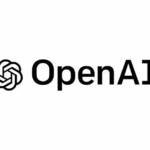AI startup Perplexity has publicly responded to a lawsuit filed by News Corp’s Dow Jones & Co., which alleges that the company engaged in extensive copyright infringement. The lawsuit, which also involves the New York Post, claims that Perplexity has illegally copied a significant amount of copyrighted material, diverting customers and revenue from the original publishers.
In a blog post published on Monday, Perplexity expressed disappointment and surprise at the legal action. The company characterized the lawsuit as indicative of an “adversarial posture” between media and technology sectors. Perplexity stated that this stance is “fundamentally shortsighted, unnecessary, and self-defeating.” The startup emphasized the need for collaboration between media companies and tech firms to create innovative tools that benefit users.
Perplexity highlighted its existing partnerships with various publishers, including Time, Fortune, and Der Spiegel, through revenue-sharing programs. The company expressed its willingness to engage in similar discussions with News Corp, stating, “Our door is always open if and when the Post and the Journal decide to work with us in good faith, just as numerous others already have.”
Perplexity noted that there are around three dozen similar lawsuits that have been filed by media companies against generative AI tools. These include notable cases such as the New York Times Co.’s lawsuit against OpenAI and Microsoft, which also alleges copyright infringement. Recently, the New York Times sent Perplexity a cease-and-desist notice, demanding that the company stop using its content.
Perplexity’s blog post criticized the underlying sentiment of these lawsuits, suggesting that media companies would like to control the flow of public information for profit. The company stated, “They wish this technology didn’t exist. They prefer to live in a world where publicly reported facts are owned by corporations, and no one can do anything with those publicly reported facts without paying a toll.”
In response to the allegations made by News Corp, Perplexity argued that the claims are misleading. The company contended that the lawsuit mischaracterizes how its system operates, asserting that it does not simply reproduce full articles but instead provides users with concise information. Perplexity stated, “Cited examples of ‘regurgitated’ outputs explicitly mischaracterize the source of the material.”
News Corp has taken a strong stance against Perplexity, with CEO Robert Thomson accusing the startup of “willfully copied copious amounts of copyrighted material without compensation.” Thomson further claimed that Perplexity presents repurposed material as a substitute for original sources, stating, “Perplexity proudly states that users can ‘skip the links’ — apparently, Perplexity wants to skip the check.”
The lawsuit alleges that in July 2024, Dow Jones and the New York Post sent a letter to Perplexity, notifying the company of the legal issues related to its use of copyrighted works and offering to discuss a potential licensing deal. Perplexity countered that it did respond to this outreach on the same day, but claimed that instead of continuing the dialogue, News Corp opted to file the lawsuit.
Perplexity also raised concerns about the nature of the allegations made by media companies in their lawsuits. The company suggested that some media organizations make sensational claims about the capabilities of AI tools but later retract those claims when pressed for details. Perplexity stated, “We presume that is what will happen here,” indicating skepticism about the strength of the media companies’ cases.
The startup pointed out that it has received recognition for its technology, noting that the Wall Street Journal ranked Perplexity as the top chatbot in its “Great AI Challenge” earlier this year, ahead of competitors like OpenAI’s ChatGPT and Microsoft’s Copilot.
Perplexity concluded its blog post by declaring its commitment to innovation and collaboration with media companies. “Perplexity is not going away,” the company stated, expressing hope for a future where it can focus on developing tools for customers in partnership with the media industry.
The outcome of this legal battle could have important implications for the relationship between generative AI companies and traditional media, as well as the broader conversation about copyright and the use of publicly available information.







